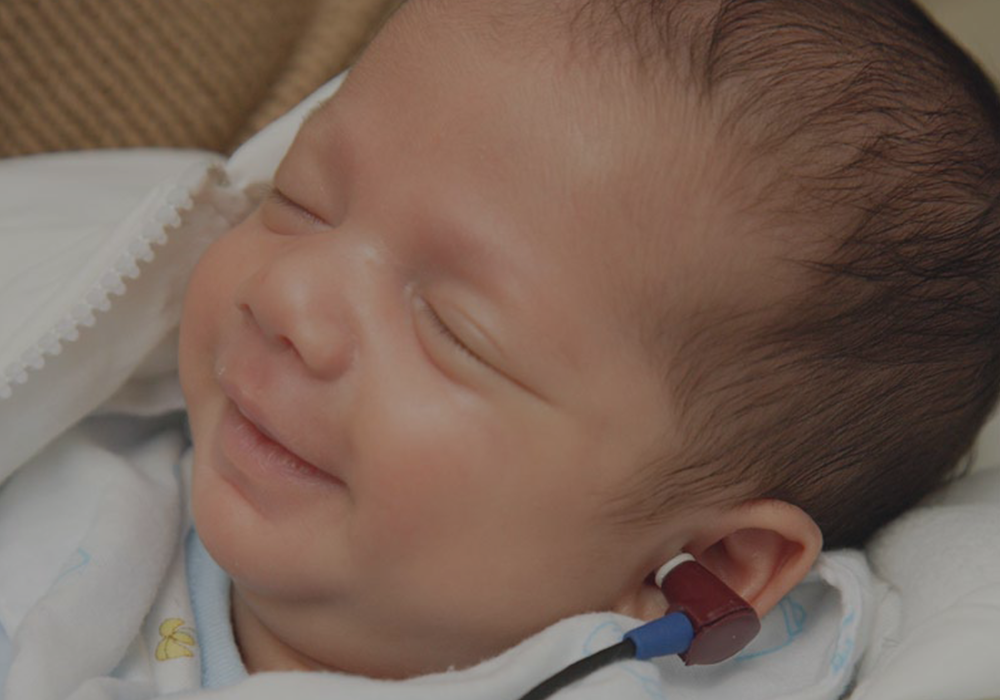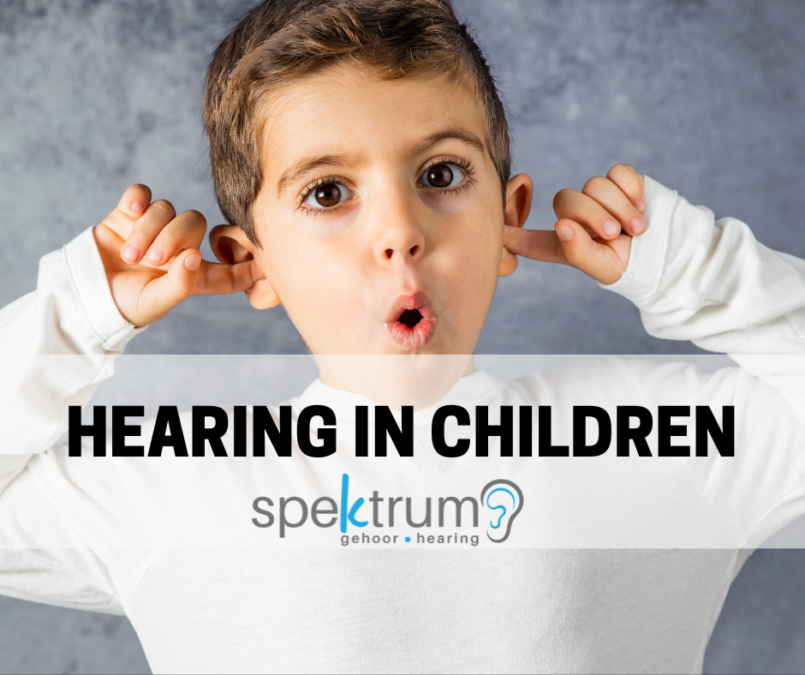
Captain HEAR’O is ‘hear’ to save some EAR!!!
July 6, 2023
Hesitant to do something about your hearing loss?
July 16, 2023
In some cases your child’s hearing would have been tested at birth in the hospital. This hearing screening is however not the last one that is needed throughout your child’s life!
What do I need to know about my child’s hearing in the first few years after birth?
New parents often experience peace of mind after this initial hearing screening to the extent that they often overlook some tell-tale signs of acquired hearing loss in the early years.
I would like to urge you to never assume that all is well with your child’s hearing since many factors can influence their hearing in the years after birth. These factors can influence hearing temporarily or permanently –those that are temporary is by far more common, but by no means less devastating and without consequences for your child.
Temporary hearing loss (possibly resolved by medical intervention)
Wax buildup
The production of earwax in the ear canal is a perfectly normal process, since it serves the following role: Lubrication of the ear, protecting against insects, bacteria, fungi and water. It sometimes happen that wax build up to form a plug and can cause a blockage in the ear canal causing a temporary hearing loss. Do not attempt to remove this wax yourself – consult a trained medical professional.
Glue Ear
A very common occurrence in infants and toddlers are the build-up of fluid/mucus behind the eardrum which causes soundwaves to not move through the ear mechanism as well as it should and preventing the child from hearing what he/she should. This is very frequently missed due to lack of ‘symptoms’. The child might also still be able to ‘hear’ to a certain extent (muffled or as if under water) and therefore parents might not be concerned. This condition is commonly referred to as ‘glue ear’ and often goes undetected for very long periods of time.
Who is more likely to develop glue ear?
- Children under 2 years of age
- Children being bottle-fed, especially whilst laying down with a bottle
- Day care or crèche settings, due to a higher risk of contracting illnesses
- Children with seasonal allergies, milk allergies and sinusitis
- Poor air quality & pollution
- Exposure to tobacco smoke
- Frequent ear infections
- Frequent upper respiratory infections
Although the majority of children do not have any signs / symptoms of glue ear, symptoms to look out for includes the following:
- Irritability
- Sleeplessness
- Touching/pulling of ears
- Breathing with an open mouth
- Balance problems
- Hearing problems
- Long term: Speech & Language development affected
- Long term: Auditory processing & listening skills affected
How can it be diagnosed?
A trained medical professional can do a visual inspection of the ear canal and eardrum with an otoscope – this can often be seen with the eye. It is however important to know that in many cases this can be missed by simply looking at the eardrum. A quick test – tympanometry can be performed by your audiologist to determine whether there is any fluid-build-up or pressure in the middle ear and is by far the more accurate option of the two.
How is it treated?
Treatment usually involves the surgical insertion of grommets or ventilation tubes in the eardrum to assist in the draining of fluid. In some cases the Ear Nose and Throat Surgeon will advise on a more conservative treatment first.
Permanent hearing loss (typically not possible to resolve/cure with medical intervention):
Permanent acquired childhood hearing loss can occur due to the following reasons amongst others:
Measles, Mumps, whooping cough, Meningitis, Unknown viral infections (often simply presenting like a common cold), Noise exposure and Ototoxic medications.
In some cases these illnesses will only affect one ear, and can easily be missed since your child will still seem to hear well. I would recommend that whenever your child had one of the above-mentioned illnesses or infections that he/she is closely monitored and brought in to the audiologist for a hearing test or screening to ensure that hearing has not been affected. Parents should also ensure that children are not exposed to loud sounds and whenever your child had a major hospitalization, be informed about which medication was administered – especially IV medication and IV antibiotics since these could potentially be ototoxic.
Besides going for a hearing test, what should I lookout for?
Developmental milestones as well as behavior can often be a tell-tale sign that hearing should be looked at. Here are some guidelines for communication, speech & language development in the first 2 years of life.
Some things to look for if you think your toddler or preschool-age child might have hearing loss:
- Has difficulty understanding what people are saying.
- Speaks differently than other children her or his age.
- Doesn’t reply when you call his or her name.
- Responds inappropriately to questions (misunderstands).
- Turns up the TV volume incredibly high or sits very close to the TV to hear.
- Has problems academically, especially if they weren’t present before.
- Has speech or language delays or problems articulating things.
- Watches others in order to imitate their actions, at home or in school.
- Complains of ear pain, earaches or noises.
- Cannot understand over the phone or switches ears frequently while talking on the phone.
- Says “what?” or “huh?” several times a day.
- Watches a speaker’s face very intently – many children’s hearing loss escapes detection because they are very successful lip readers.
My child had a hearing test, it was normal. I (or the teacher) still feel that the hearing might be a problem – what now?
With children we would rather want to be sure and not put something down to something being ‘selective hearing’ while there might be something else that needs looking at. Have you heard of ‘auditory processing’?
Auditory Processing is the process of taking in sound through the ear and it travelling to the language area of the brain to be interpreted. To have a delay or difficulty in this process is called an auditory processing disorder or “delay.” This deficit is present despite having normal hearing. This typically presents as a child that is having difficulty in hearing in noisy environments, difficulty remembering tasks that was heard. A person’s first assumption is that the child has a hearing problem. Consult your audiologist for further assessment of auditory processing skills.
In conclusion – despite the fact that your auntie or granny says “so and so only started speaking when they were 5 – just wait, when they start speaking you won’t be able to stop them” – there might be some merit in monitoring your child’s hearing since there are many aspects possibly influencing hearing and consequently speech & language development and possibly auditory processing ability.
If you have any concerns or questions about your child’s hearing you are welcome to contact us.





